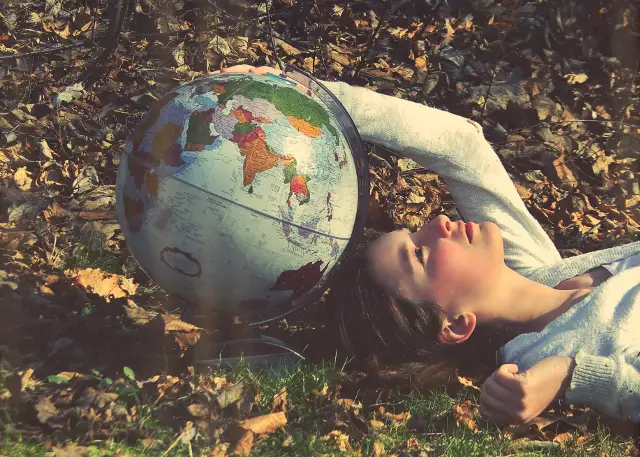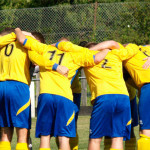Jonathan Dodd‘s latest column. Guest opinion articles do not necessarily reflect the views of the publication. Ed
Sometimes I do ask myself what it’s all about, and what am I doing here, and is any of it actually important, and does any of it actually amount to a hill of beans anyway. And sometimes I even catch myself thinking it’s all a bit of a dreary roller coaster, but I have to admit that none of this lasts very long, because I’m one of those relentlessly upbeat people. I suppose that it’s important to me to search for the good news rather than get swamped by awfulness.
I did try the awfulness route for a while. There’s a phase that probably everyone passes through, usually in the teenage years, when everything looks dark and miserable. It’s a very common thing, and it provides a lot of material for family sit coms on TV. There’s nobody anywhere as cynical as a fourteen-year-old.
The world is what it is
Some people seem to get stuck in this well of despond though, and it’s probably the cause of most worry for the parents of teenagers. Not only wondering how long it will last, but in the background the possibility that it won’t stop. And it’s a real worry, because the real drama of the teenage years is that it can be a dangerous time. In so many ways.
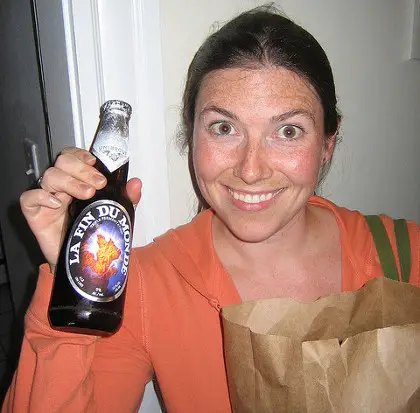
Many things saved me from becoming morbid, but the thing that really worked was the realisation that the world is what it is whatever attitude I might personally hold at the time. You can read a newspaper and be overwhelmed by the terrible news, or you can only remember the bit where someone’s lost dog was returned to its owner. Or your football team won decisively. Or your shares rose in value. Or an eagerly-awaited new book is announced.
Some may not be shared by anyone else on the whole planet
Even the terrible news might not be terrible anyway. It depends on your attitude again. There are people out there who support I.S., to whom a beheading is good news and a cause for celebration. That’s an extreme case, but it can’t be denied. News of a government minister having to resign can be seen as yet another example of the decline of standards in public life, or it can be seen as another step towards the possibility of a new government that’ll sweep away all this corruption and venality.
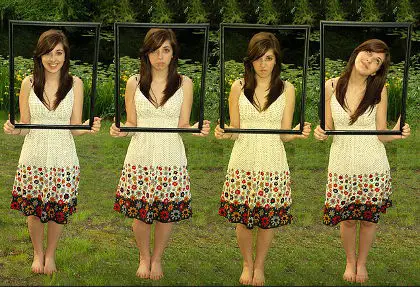
The point is that it’s the same newspaper and the same news, but everyone who reads it is bringing their own attitudes to bear when they read it. I’m no exception. There are things I can’t stand, and they’re often not the same things that other people get annoyed about. Some of my bugbears are shared by very many people, and some may not be shared by anyone else on the whole planet. That’s part of the internal universe that is uniquely mine, and it can’t possibly be exactly the same as anyone else’s universe. Like my fingerprints, or my DNA.
Other opinions may apply
The trouble with people is that they forget this. All the time. Or maybe they just don’t understand that this fierce sense of right and wrong is inside their heads and not a part of the real landscape outside. Or maybe they actually don’t care about anyone who doesn’t share their world view. The concept of – ‘Other opinions may apply’ – is lost on them. Theirs is a sort of intellectual empire-building, which seeks to make one world view prevail over all others, and actively works towards the destruction of anyone who doesn’t fit the model.
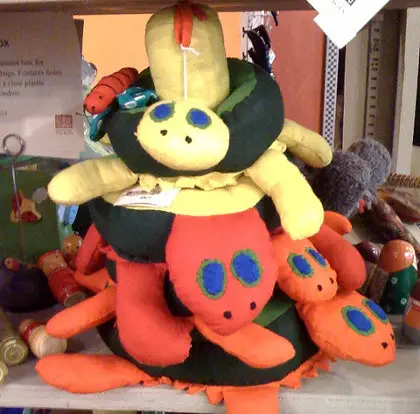
I’m sorry, but these people are actually crazy, because it’s a model that simply won’t work on any level. It shouldn’t matter if you believe that the moon is made of green cheese or the world is a disc on the back of a pile of turtles, and actually it doesn’t, because it’s just your opinion. But it’s insulting to be told you’re wrong all the time, and being taken out into space and shown the roundness of the world and the complete lack of turtles probably won’t change your mind anyway. Besides, nobody should have the right to attempt forcibly to change your mind.
First, do no harm
The only point at which this nice idea breaks down is the moment when you take up arms against me because I don’t believe the same thing that you do. Or if I take up arms against you. I find this whole thing very clear and very simple and straightforward and easy to understand. And because I understand it, I find it easy to live by these principles. What’s not to agree with?
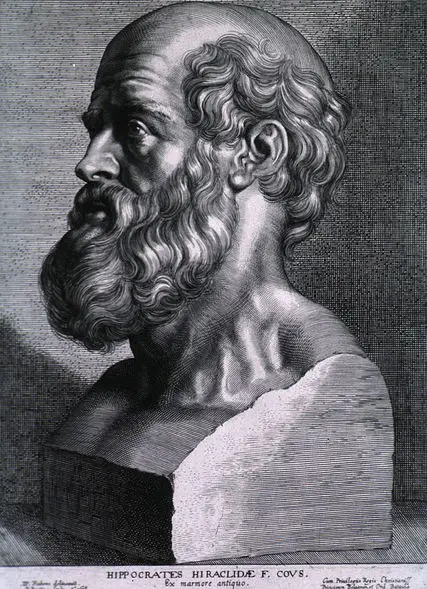
I’ve always thought that newly-qualified doctors swore the Hippocratic Oath, and I also thought it contained the phrase – ‘First, do no harm’. Sadly, the oath doesn’t quite say that, although there is an element of – ‘…abstaining from causing suffering’, and apparently it isn’t compulsory any more. But I do think it’s an excellent guiding principle for any human activity. It’s at least a good question to ask before taking any action.
You have to make a judgement
Of course there are secondary considerations, because we live in a complicated world. What do you do if someone breaks this principle and sets out to cause violence and mayhem? It’s all very well to understand, quite rightly, that evil empires never last and bad people generally come to bad ends, but sometimes you have to make a judgement between the amounts of suffering you guess you might cause or prevent by taking one or another course of action.
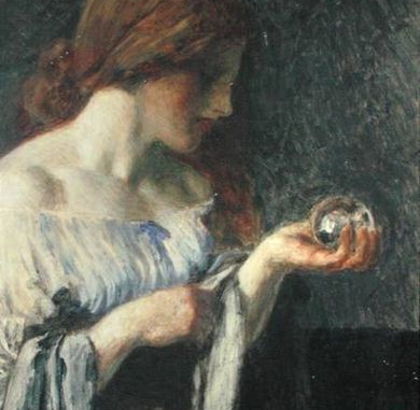
My parents were part of a whole generation that bore the brunt of a world war, and their parents before them. Our lives are all still affected by ripples caused by that conflict. It’s easy to come up with statistics and projections to suggest that we were right or wrong to go to war then, and we can project theories to suggest that everything was made better or worse as a result, but it’s all guesswork. Because we can’t see into the future we have to act according to the best information we have, and we have to be guided by our best and most honourable beliefs and intentions. Which is just another way of saying – ‘I don’t know what’s the right thing to do, but I have a sense of what we should do’.
Shouting louder misses the point entirely
I prefer to think that the First World War was a tragedy, but the Second World War was righteous in the sense that it was fought reluctantly in the hope of preventing tyranny and the suppression of liberty and basic human rights. I don’t know whether it could have been prevented or not, but I’m quite sure that the principles that our side represented in the Second World War would have remained strong even if we had lost. You can only win a discussion by persuading the other side of the rightness of your cause. Shouting louder misses the point entirely.
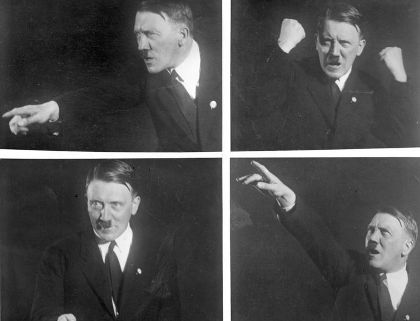
So I’ve had to rethink everything again. Here’s my new model.
First, there is the world out there. We live in it.
Then we have our attitudes and beliefs, which we apply to our view of the world.
Then there’s a very misty and flexible area where we have to struggle with the idea of doing or not doing something about the things that we see out there.
The stakes can rise dramatically
When it’s a matter of going to get some milk or not making tea, it’s really quite easy. But if it comes to standing up to Russian aggression or taking on the fighters of Islamic State before either of them start to make real impacts on our way of life or the prospects for international peace, it becomes harder and the stakes can rise dramatically.
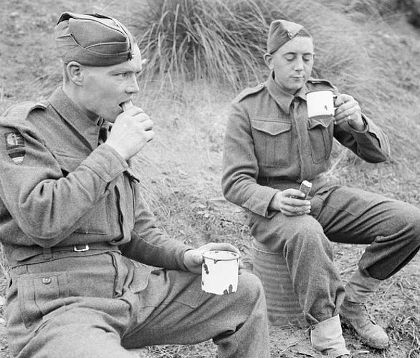
I have no answers, as always, but I hope that being informed and having a strong sense of right and wrong might help me to decide which way to jump. If I’m asked.
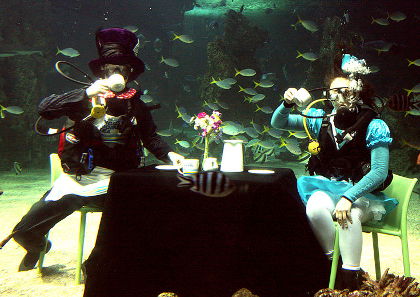
Let’s hope it doesn’t come to that. And I’m quite happy to go out and get some milk. Let’s put the kettle on.
If you have been, thank you for reading this.
Image: martinaphotography under CC BY 2.0
Image: paul_irish under CC BY 2.0
Image: allyaubryphotography under CC BY 2.0
Image: jyllish under CC BY 2.0
Image: Public Domain uploaded by SplinterCellGuy under CC BY 2.0
Image: Public Domain under CC BY 2.0
Image: Bundesarchiv, Bild 102-10460 / Hoffmann, Heinrich under CC BY 2.0
Image: Sgt Courtney No 2 Army Film and Photographic Unit under CC BY 2.0
Image: Eva Rinaldi under CC BY 2.0

